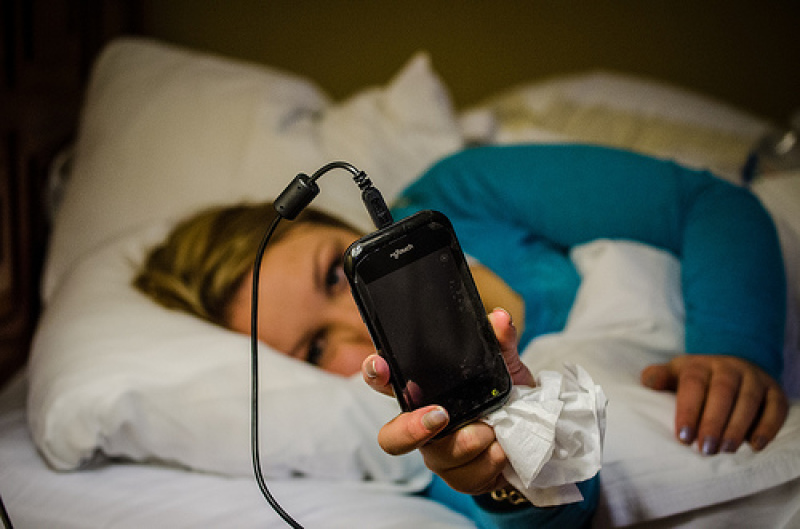
A new study revealed that smartphones and other mobile devices in the bedroom are worse than television sets in delaying a child's sleep schedule, the American Herald reported.
According to their findings, researchers discovered that these devices are more effective in distracting kids who are about to go to sleep than tuning in to television programs.
The study was published in Pediatrics, a monthly journal featuring reports on children's health.
For the study, the researchers surveyed more than 2,000 male and female elementary and middle school students about their sleeping habits and use of various electronic devices in the bedroom.
The researchers then compared the length of the participants' sleep to the suggested period by the U.S. National Heart, Lung, and Blood Institute, according to Health Day.
According to the medical organization, children who are in their pre-teen years should be able to sleep by at least 10 hours every night. In the study, the sleep period of participants who have television sets inside their rooms is cut short by an average of 18 minutes.
On the other hand, those who own smartphones had 21 minutes less sleep. In addition, those who enjoy tinkering with their mobile devices went to sleep later than those who prefer to watch television.
"Studies have shown that traditional screens and screen time, like TV viewing, can interfere with sleep, but much less is known about the impacts of smartphones and other small screens," lead Researcher Jennifer Falbe of University of California's School of Public Health said in a statement.
"We found that both sleeping near a small screen and sleeping in a room with a TV set were related to shorter weekday sleep duration," she added. "Children who slept near a small screen, compared to those who did not, were also more likely to feel like they did not get enough sleep."
Falbe explained that small screen gadgets, like smartphones and tablets, can disrupt sleep more than TV sets because of their portability.
Since they are small enough to hold while lying in bed, users are more prone to get distracted by them as they prepare to go to sleep. In addition, compared to televisions, mobile devices offer a wider range of features such as videos, games and online activities.
The researchers warned that insufficient sleep may cause poor mental performance during the daytime. In addition, previous studies have shown that not getting enough sleep can lead the development of various types of diseases.

















